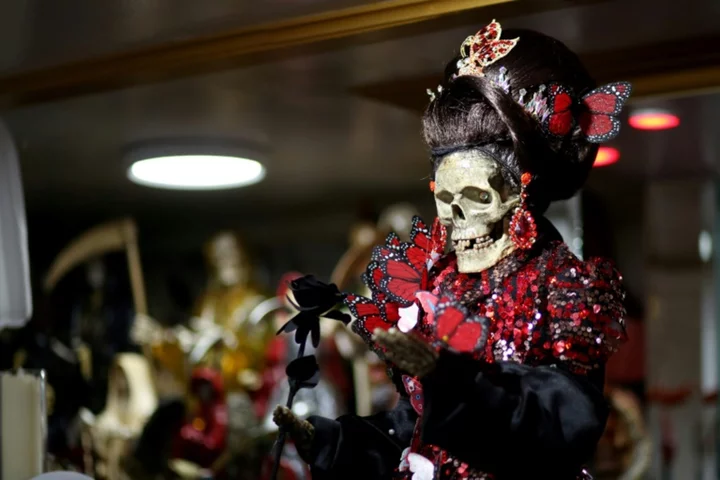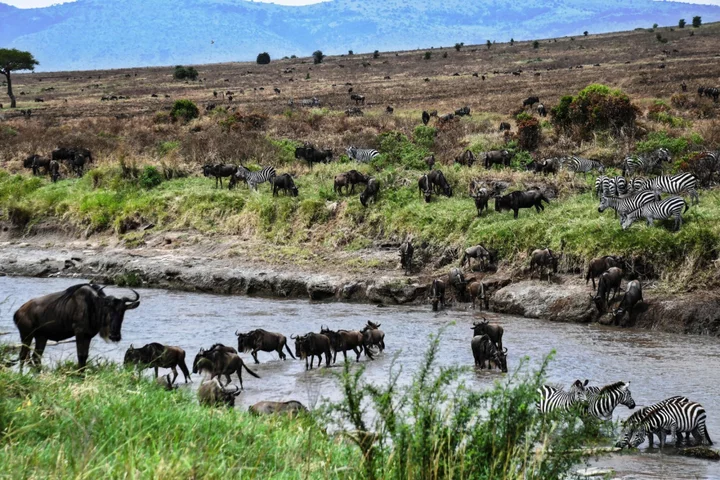They may live in a tourist paradise, but many villagers on Greek islands despair of a central government they say does little for them.
"We are second-class citizens," said retired sailor Manolis Melaisis, sitting outside a cafe in Diafani on the island of Karpathos.
"No doctor stays here for more than a year. There is no pharmacy and soon there will be no school either," he said.
Although it is the second-largest island in the Dodecanese group after Rhodes, Karpathos has only two ferries a week to Athens.
In the hillside village of Olymbos, the leaflets for Sunday's national election lie on the counter of Sofia Chatzipapa's cafe.
"MPs, the prime minister and the president have all passed through here admiring our beautiful village," scoffed the woman in her 70s, who wears the island's traditional embroidered black dress and headscarf.
"They take pictures. Then once they're back in Athens, they forget about us and our problems," she said.
As well as no pharmacy, Diafani -- which has about 200 permanent residents but draws thousands of tourists in summer -- also lacks a bank, post office or petrol station.
The only road to the island capital of Pigadia is winding and strewn with stones.
- 'Breath of life' -
At the Diafani cafe, a photograph shows the old sailor Melaisis with the rest of his school class.
In 1961, there were about 60 pupils. Now there are just two and the school may not reopen after the summer.
A bus drops off Diafani's last remaining schoolchildren -- Vassilis, 11, and Marinos, 8, who live in Olymbos.
Their teacher, Theodora Koukourikou, carries their backpacks so they can climb the steep path to the school, which is perched on a rise facing the sea.
"These schools on isolated islands are a breath of life for small communities," said the 27-year-old teacher, who was appointed to Diafani last September.
"Once closed, there will be nothing left of Diafani or Olymbos... It will just be a destination for tourists."
At the start of the next school year, Vassilis will go to secondary school in Olymbos, joining his elder sister and seven other pupils.
Marinos may also have to go there despite being way too young.
Olymbos -- known for its windmills, pastel-coloured houses and chapels -- has so far managed to keep its local crafts, dialect and music alive.
But this heritage is now under threat, as is the future of the villages themselves.
"The abandonment of our villages is an open wound that no government has succeeded in resolving," said Yannis Hatzivassilis, a sculptor who has carried on the trade of his father.
- 'Asking for basic services' -
"In the 1960s people left to work abroad and few returned. Farmers now devote themselves to tourism and the younger generations aspire to a more comfortable life," Hatzivassilis said.
"We have a beautiful country but not the administrators that it deserves."
Both Diafani and Olymbos rely for basic supplies on the island capital, which is an hour and a half away by car on windy roads.
"The state must encourage families to come to these remote regions with grants or a reduction in taxation," said Ilias Papailias, a restaurant owner and head of the local Diafani-Olymbos council.
Yannis Prearis is the last cobbler who makes the leather boots traditionally worn by the women of Olymbos.
His son is not yet two years old but Prearis already knows that if the school closes, he will be forced to leave Olymbos.
"We are asking for a doctor, a school, safe roads, public transport -- basic services that any state should provide to all citizens," he said.
But he would like to stay in Olymbos.
"My grandfather and my father did this job and if I leave, it's a whole craft that will disappear."
mr/jph/gil/fg









